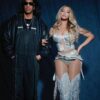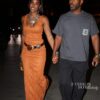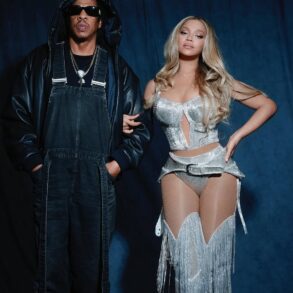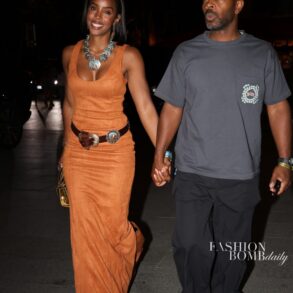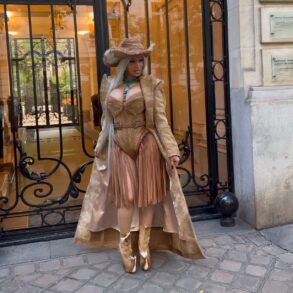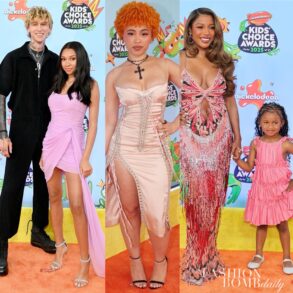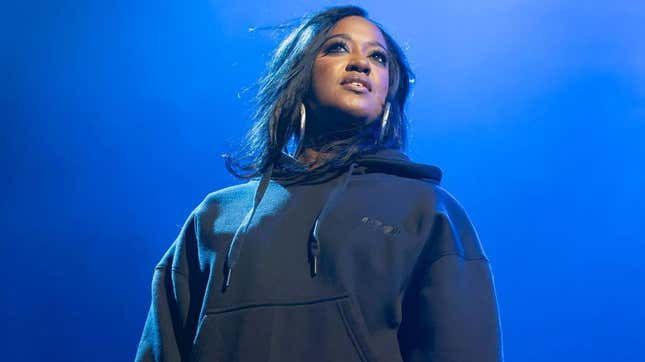
The “women rap about one thing” narrative is getting old. You’ll hear it from an idiot on social media or even a veteran New York MC every once in a blue moon. Either way, it’s a lazy take that’s born out of ignorance.
If you’re a hip-hop fan who is spoon-fed music through radio, social media, or playlists by streamers, you probably have a take like this. But if you’re a music seeker, a fan who seeks out good music and is always looking for dope and unique rhymes, you probably think differently.
“You have listeners and fans who understand that TV and radio is not the only source for telling us who’s the best of the best and what we should be tuned into,” Rapsody told The Root. “There are other fans who still look to TV and radio to add value to what their attention is put on.”
If you describe yourself as the former, you’ve probably heard of the North Carolina MC who’s been putting out plenty of dope music for over a decade.
Her debut studio album, The Idea of Beautiful, set the stage for the kind of artist she was going to be in the future. A thoughtful and talented lyricist who had the ability to be personable while also sharing unique experiences she’s gone through as a Black woman growing up in North Carolina.
Released in 2012, the album stood out in a year that was filled with quality projects from Kendrick Lamar, Killer Mike, Nas, Roc Marciano, Schoolboy Q, El-P, Ab-Soul, and many more. And although it was an excellent, the album did not launch Rapsody into mainstream notoriety. That would come years later.
For me, she was a game changer. I was in high school when her debut album came out, and I had recently broken the bounds of mainstream hip-hop. The internet was my new way to find music.
Keep in mind, the only female rapper I thought was currently putting out music at the time was Nicki Minaj. Call it ignorance, call it sexism, but she was the only one I thought was relevant or notable.
Then, my best friend in high school played a song from the album called, “Drums.” Not only did the track sound beautiful, but it was also exceptionally well-written. In the song, she raps about the stereotypes often talked about in hip-hop and how there needs to be more balance in the genre
“They slave to the oldies, the presidents, just think/This real life rap, money, power, there’s nothing else/A lot of sex, drug usage and rapping about wealth/Ain’t not balance in this system no more we ain’t well/Ain’t a rapper on the radio wit stories to tell/Hip Hop never died, yo the radio failed/Now the powers with the people wonder if they can tell.”
Whether I knew it or not. She was talking about me. We (the listeners) have the ability to change how we (and others) perceive the genre.
Now, years later, there are more female MCs than ever who are making waves in the mainstream and underground hip-hop space, and Rapsody is standing right in the middle of it all. While she’s not nearly as popular as Doja Cat, Ice Spice, Megan Thee Stallion, or Cardi B, she’s been putting out nothing but great music longer than all of them.
She’s just as lyrical as Little Simz, CHIKA, Kari Faux, Princess Nokia, Che Noir, and Sa-Roc., but she’s the only one out of this group that’s been nominated for a Grammy.
Whether she knows it or not, Rapsody is a hip-hop pioneer, at least in my world. Few have been able to hit a special place in their careers where they can stand toe to toe with some of the biggest names in music (Kendrick Lamar, J. Cole, Anderson .Paak) and also put out lyrical and unique music that is respected by the backpackers. Rapsody is one of one.
Because of that, she is in a rare spot where she is a veteran artist whom younger MCs come to for guidance, but also an artist who still seeks opportunities to grow and learn.
“I’ll continue to grow and become a better artist,” said Rapsody. “This is a forever thing for me. I want to give back in the same way people have given back to me. But I also have the humility to know that I’m still learning and don’t know everything. I’m excited for the next journey.”
Her “next journey” has been four years in the making, as the last time she released a body of work was 2019’s EVE. But the time is almost here for a new journey.
“It depends on me and the life that I live,” she said. “I have to go out and experience things so I can be inspired and write something that my fans want to hear. That takes time.”
She continued, “We went through a pandemic. It allowed me to really focus and heal and reintroduce myself to me. That was a process. When I’m working on projects, I don’t stop recording until I feel like there’s nothing to be said and that took me four years to do.”
In her first reintroduction, Rapsody released, “Asteroids,” a single in collaboration with accomplished producer Hit-Boy.
Also a part of her introduction is her involvement with The Hip Hop Museum Tour, which serves as a precursor to the opening of the Hip Hop Museum in 2025 in the Bronx, NY.
The traveling exhibit includes important hip-hop artifacts from 1973 to 1990. Along with the exhibit, Rapsody and a group of artists have traveled from city to city to perform while also highlighting the cultural and social accomplishments of that community. Other artists associated with the tour include Lola Brooke, Baby Tate, Uncle Luke, and KentheMan.
The tour has already visited New York City, Atlanta, Houston, and Los Angeles. The last stop on the tour will be in Miami on Dec. 9.
“I think it’s an amazing way to celebrate hip-hop,” said Rapsody. “We actually get to look at all these pieces of history that were a part of making the culture we have today.”
She added, “This is a culture that gave us permission to be who we are, express ourselves, and make everyone feel welcome, worldwide. You didn’t have to rap. You could DJ, dance, make clothes, do graffiti, or produce music. It just gave us space and I think that’s so important to acknowledge and celebrate it.”
This post was originally published on this site be sure to check out more of their content.

